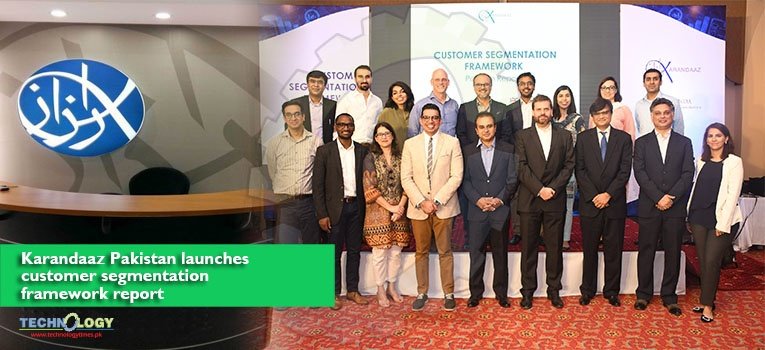Karandaaz Pakistan shared the findings of its study on Consumer Segmentation. The customer segmentation report, funded by the Bill & Melinda Gates Foundation (BMGF), is based on an exhaustive study by Karandaaz’s international consulting partners, Dalberg Design Impact Group.

The primary aim of undertaking the exercise has been to enable digital financial services providers to develop modular products and services better suited to specific client segments. The research addresses the needs of segments that have remained underbanked or unbanked, such as women and low-income youth.
The thinking is that modular products addressing the needs of specific client segments will catalyze greater uptake of digital financial services.
The report provides valuable insights into currently excluded segments and can help the private sector better target these segments and provide tailored services. The study employed a novel approach to segmentation that integrates contextual, behavioral, and psychometric variables.
An extended section in the report analyses the profile of female consumers, their attitudes, and gender specific barriers for financial inclusion. The complete report is available on Karandaaz website at: https://karandaaz.com.pk/karandaaz-publication/.
Rehan Akhtar, Director Karandaaz Digital said, “The barriers and opportunities are nuanced within the low-income segment. This study explores and identifies opportunities for digital financial service providers in light of these differences, and helps understand the needs, and behaviors of each sub-segment within this larger customer group.
No such study to understand customer segmentation for digital financial services has ever been carried out in Pakistan. We are confident that the findings will help financial service providers better understand their market and develop more focused products, leading to greater financial inclusion rates for the country.”
Speaking at the event, Mehr Shah, Director Karandaaz Knowledge Management and Communications said, “There is now ample evidence to suggest dealing with low-income customers as a homogenous market segment is not the best way forward.
It is important that we dig deeper to understand the specific needs and preferences of the sub-segments and provide information and insights into consumer behavior for the industry to increase uptake. It is also worth considering whether the vast amounts of data that financial service providers already have is being mined and utilized optimally.”
Syed Ali Mahmood, Program Officer, Global Development, Financial Services for the Poor, Bill & Melinda Gates Foundation said, “The Financial Services for the Poor program of BMGF supports government and private-sector partners in a shared effort to establish financial services for the world’s poorest to use to build more prosperous and secure lives for themselves, their families, and their communities.
Our strategy is aimed at supporting what we and our partners believe are the most catalytic approaches to financial inclusion: helping to drive the development of digital payment systems that can help spread use of digital financial services quickly, advancing gender equality to ensure women share in the benefits of financial inclusion, and supporting the development of national and regional strategies that accelerate progress for the poor and provide exemplar models. This customer segmentation framework report is a big step in this direction for Pakistan.”
Karandaaz Pakistan is promoting financial inclusion for individuals by employing technology-enabled digital solutions and access to finance for micro, small and medium businesses through a commercially directed investment platform.
The company has financial and institutional support from the Bill & Melinda Gates Foundation and the United Kingdom’s Department for International Development (DFID).